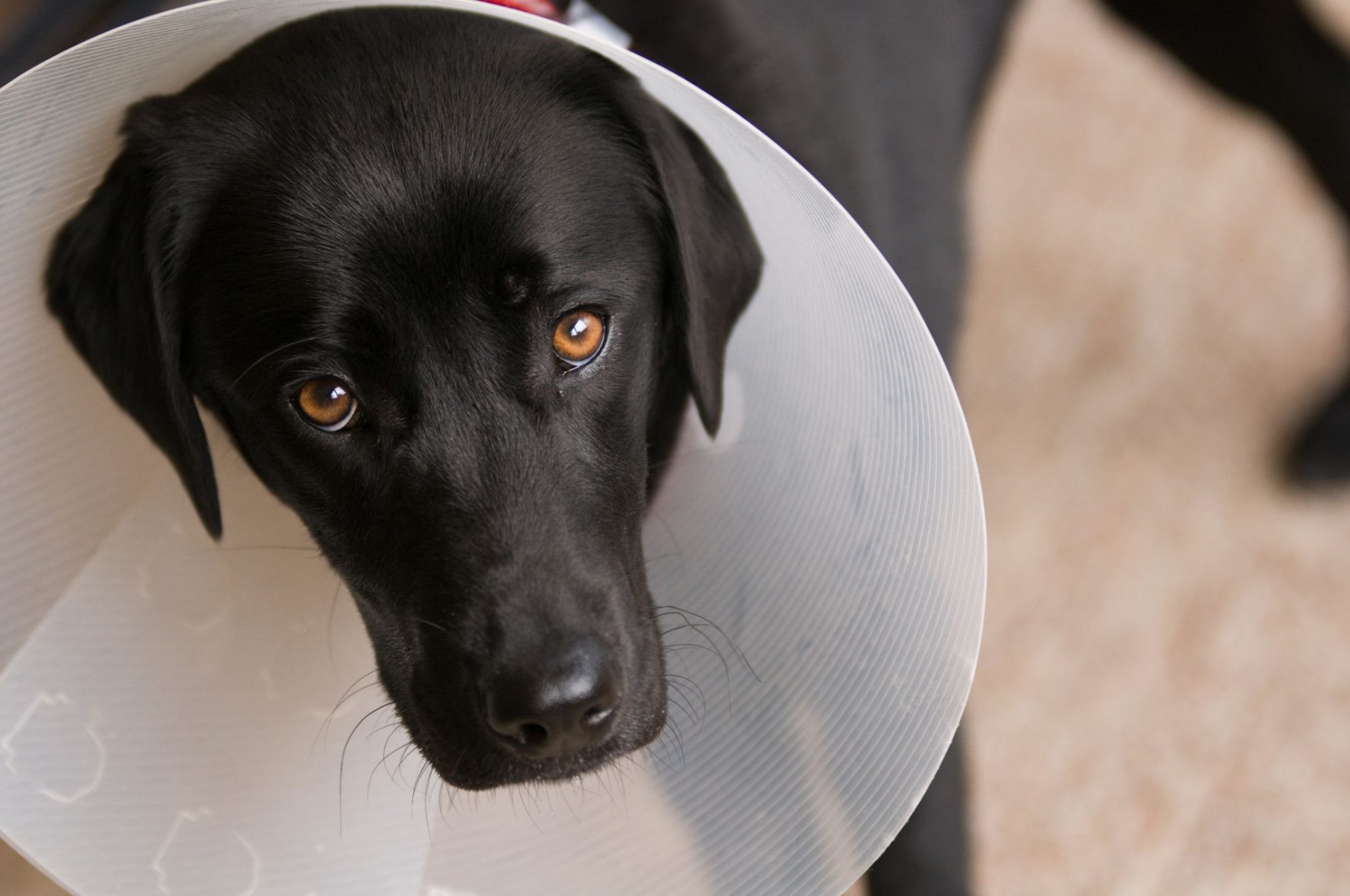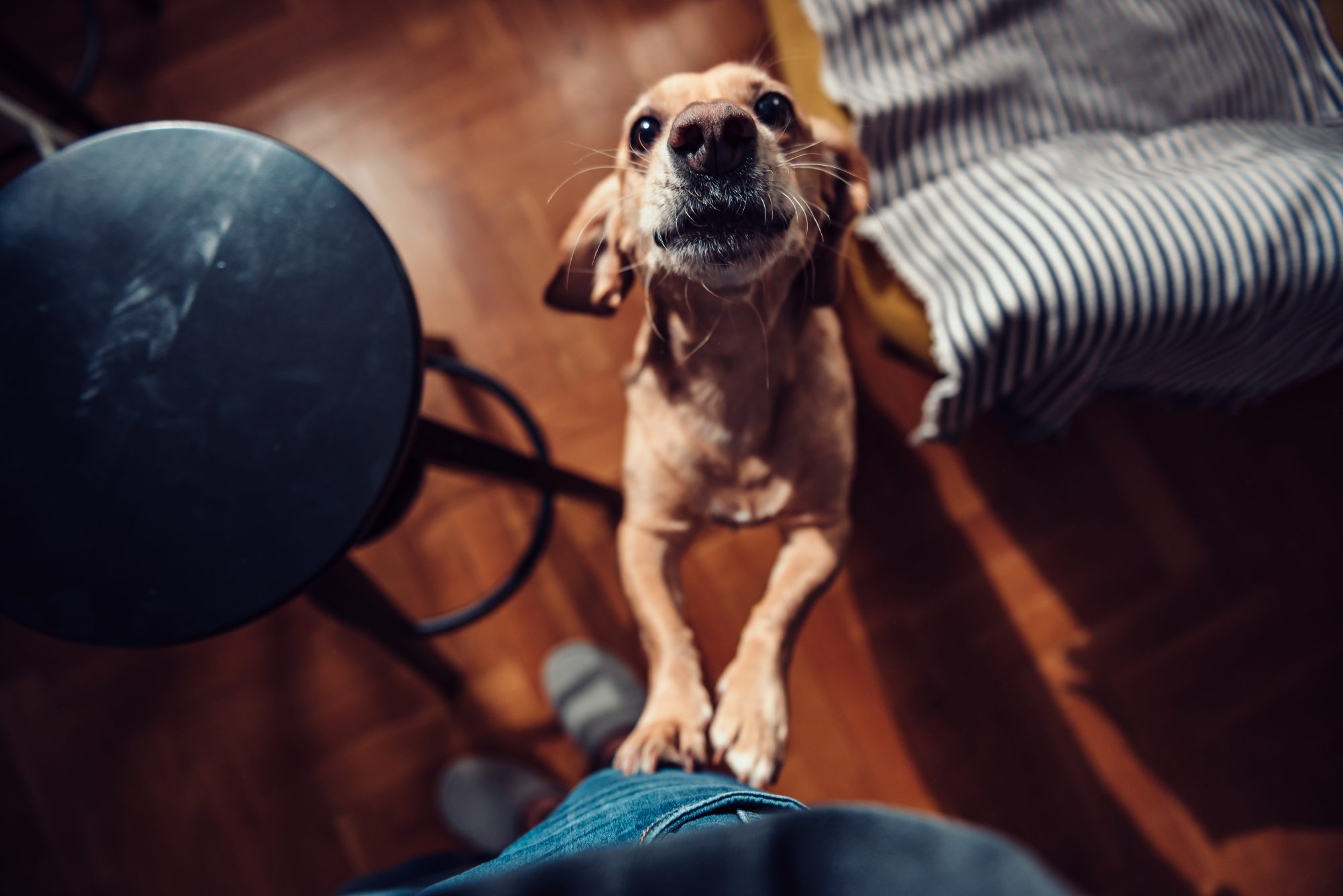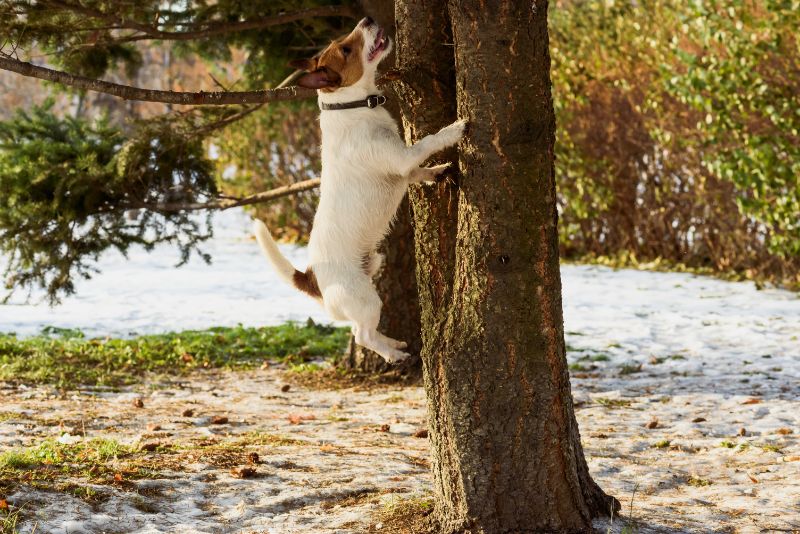Posts in Category: For The Dogs
No More Cone of Shame: Alternatives to the Elizabethan Collar

Ah, that pitiable look of contrition, the telltale sign that a dog has had surgery. Yes, the dreaded Cone of Shame. These neck cones, formally called Elizabethan collars, are used after a pet has a procedure to prevent them from licking the wound site. While this is an important addition to prevent the removal of sutures or disruption of healing, dogs will all agree that they are uncomfortable.
Just because your dog needs a barrier to prevent them from getting at the surgical site, it doesn’t need to be the Cone of Shame. Here are some great alternatives to the Elizabethan collar presented to you from your friends at Leon Valley Veterinary Hospital.
Continue…My Dog Bit Someone! What Should I Do?

Dog bites account for more than 4.5 million injuries each year. While it may be easy to assign blame to canine behaviour or assume the dogs who do this are just “bad dogs,” any dog can bite. If your dog bit someone, it can be scary and confusing as to what to do about it.
The team at Leon Valley Veterinary Hospital will explain the steps you should take should the unexpected bite happen.
Continue…Undoing the Damage: Untraining Bad Habits in Dogs

Dogs are smart. Their ability to recognize patterns and to anticipate cause and effect relationships is almost humbling to us humans at times. It is easy to harness these traits for good, but sometimes these qualities in our canid friends can backfire, too.
Most pet dogs have picked up some bad habits along the way. Your friends at Leon Valley Veterinary Hospital want you to know that if you have inadvertently taught your pup some poorly received tricks, all hope is not lost. While it can take a lot of work, untraining bad habits in dogs is possible under most circumstances.
Continue…The Question Remains… Harness, Leash, or Both?

Many dog owners have a preference for certain types of leashes that work best for their pets. Some claim to love the traditional nylon leash, while others feel that a harness type leash is safer for their squirrely dog. Then you add to the mix the wide variety of styles, colors, materials, and so on, and it can be exceptionally hard to determine the right one for your furry friend.
The good news is that there is no one correct answer, but there are some suggestions to keeping your pet safe. The team at Leon Valley Veterinary Hospital is here to explain why the harness, leash, or both question is a great one. Let’s take a closer look.
Continue…The Dangers of Letting Your Dog Ride in the Truck Bed

Dogs and trucks seem about as rural America as apple pie. Most dogs do love to feel the wind on their face, picking up all of the scents of the natural world around them. You have probably seen more than a few big goofy smiles from dogs as they put their head out of the car window. The same is true when dogs ride in the back of the truck.
Unfortunately, this combination of dogs and truck rides is a very dangerous one. The team at Leon Valley Veterinary Hospital wants to explain why letting your dog ride in the truck bed is unsafe and what you can do to better protect your best pal.
Continue…How to Stop Your Dog from Chasing Squirrels, Birds, and Other Animals

Wildlife is abundant in Texas, including those that are venomous and carry zoonotic diseases, which are transmittable to humans. While wildlife are beautiful and necessary, domestic dogs still have their innate prey drive that causes thousands of wildlife related emergencies each year.
Many pet owners lament why they can’t stop the family Fido from running after wild animals, which carry disease and threats of injury. This is why the team at Leon Valley Veterinary Hospital is here to give you some suggestions on how to discourage your dog from chasing squirrels and other wild animals.
Continue…That’s Lame! What Causes Limping in Dogs

If your pet has suddenly developed a limp, it can be a worrisome situation. Did they sustain an injury? Is it arthritis? What happened?
There are many reasons why orthopedic injuries and conditions develop. Your team at Leon Valley Veterinary Hospital is here to give you the run-down on what causes limping in dogs and what you can do to protect your pet from these problems.
What Causes Limping in Dogs
Most dogs are full of energy and enthusiasm, bounding over rocks and logs, darting here and there in the park, and roughhousing with their canine peers. No wonder they are prone to occasional injury with all of the wear and tear they put on their physiology. Lameness and limping are sure signs that something is amiss and your dog is in pain.
Continue…Puppy Socialization in a Less Than Social Time

At Leon Valley Veterinary Hospital, we are seeing more new puppies than ever! With social restrictions in place it seems like many have decided it’s a great time to grow their furry family.
While we couldn’t be happier for all the proud, new pet parents out there, raising a puppy during COVID-19 has its challenges. In particular, socialization suffers when your new pet can’t get out into the world and learn about different people, places, and things. That’s not to say it’s impossible, though. You can still do a good job with puppy socialization in a less than social time.
Continue…Call the Woof Fairy: The Wonderful World of Puppy Teeth

Losing our baby teeth is a rite of passage, but for our canine friends it is an oftentimes overlooked event. In fact, many puppy owners are surprised when they learn that puppies lose teeth at all. Those sharp, needle-like teeth are, however, replaced by adult teeth early in life.
Leon Valley Veterinary Hospital thinks it is important to know what to look for when it comes to puppy teeth because good pet dental care starts right away for our pets.
Deciduous Details
Much like human babies, puppies are not usually born with any teeth. They begin to erupt baby, or deciduous teeth, at about 3-5 weeks of age. Typically these 28 teeth are erupted by about 10 weeks of age.
Continue…Safety Tips for Walking Your Dog at Night

In a perfect world, we’d be home earlier in the evening and have every chore done before sunset, so we can enjoy a late afternoon stroll with our pet. Or, to be a morning person so that we can go on a walk with our favorite doggo before work. Unfortunately, most of us work long hours and can’t get outdoors with Fido until after dark..
Your dog needs, though, daily exercise and a chance to bond with their person while doing an activity together. Nighttime walks present some safety risks to be aware of. Your team at Leon Valley Veterinary Hospital is here to keep your furry one safe on their walks.
Continue…

